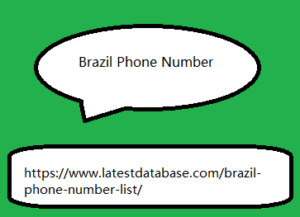Post by afifatabassum on Mar 11, 2024 1:26:48 GMT -5
In short, from the facts we move on to verbal skirmishes with Google which states “ We regret that Facebook has not invested its time in making it possible for users to transfer their contacts outside of Facebook . As strong supporters of people's right to control the data they create, we will continue to allow our users to export their Google contacts ." A new position compared to the one supported a year earlier when it blocked users from importing Orkut data to Facebook. The response from one of Zuckerberg's employees comes in a comment on a Techcrunch post: “ The most important principle for Facebook is that each individual owns and controls their own information.
Your friends list, but not your friend Brazil Phone Number information (…). An email service is different from a social networking service because in the first case each person manages and has their own address book, while in a social network your friends manage their own information and you manage a list of friends. That's why we think it makes sense for email applications to export address book addresses and for social networks to export friends lists ." Update : now if the Facebook user tries to export their Gmail contacts manually they are faced with this warning " You have been directed to this page from a site that does not allow you to re-export your data to other services, effectively locking your friends' contact details.

So once you import your data there, you will no longer be able to take it back out. " The story offers interesting food for thought on the double level of competitive strategies and users' rights to use their data. From the first point of view, Google's late move to block Facebook's further expansion could usher in a season of data protectionism with uncertain results in terms of innovation. Under the second, it must first of all be recognized that the two services are substantially different and therefore give rise to different "rights" of users. Gmail, despite having unilaterally abolished the possibility of automatic import of contacts, continues to guarantee the acquisition of your address book for possible import into another service. Facebook, rightly, cannot give the individual user information from their social network, but only their own information expressly entered into the social network (profile data, friends list, exchanged messages, status, notes, events, uploaded videos and photos).
Your friends list, but not your friend Brazil Phone Number information (…). An email service is different from a social networking service because in the first case each person manages and has their own address book, while in a social network your friends manage their own information and you manage a list of friends. That's why we think it makes sense for email applications to export address book addresses and for social networks to export friends lists ." Update : now if the Facebook user tries to export their Gmail contacts manually they are faced with this warning " You have been directed to this page from a site that does not allow you to re-export your data to other services, effectively locking your friends' contact details.

So once you import your data there, you will no longer be able to take it back out. " The story offers interesting food for thought on the double level of competitive strategies and users' rights to use their data. From the first point of view, Google's late move to block Facebook's further expansion could usher in a season of data protectionism with uncertain results in terms of innovation. Under the second, it must first of all be recognized that the two services are substantially different and therefore give rise to different "rights" of users. Gmail, despite having unilaterally abolished the possibility of automatic import of contacts, continues to guarantee the acquisition of your address book for possible import into another service. Facebook, rightly, cannot give the individual user information from their social network, but only their own information expressly entered into the social network (profile data, friends list, exchanged messages, status, notes, events, uploaded videos and photos).
